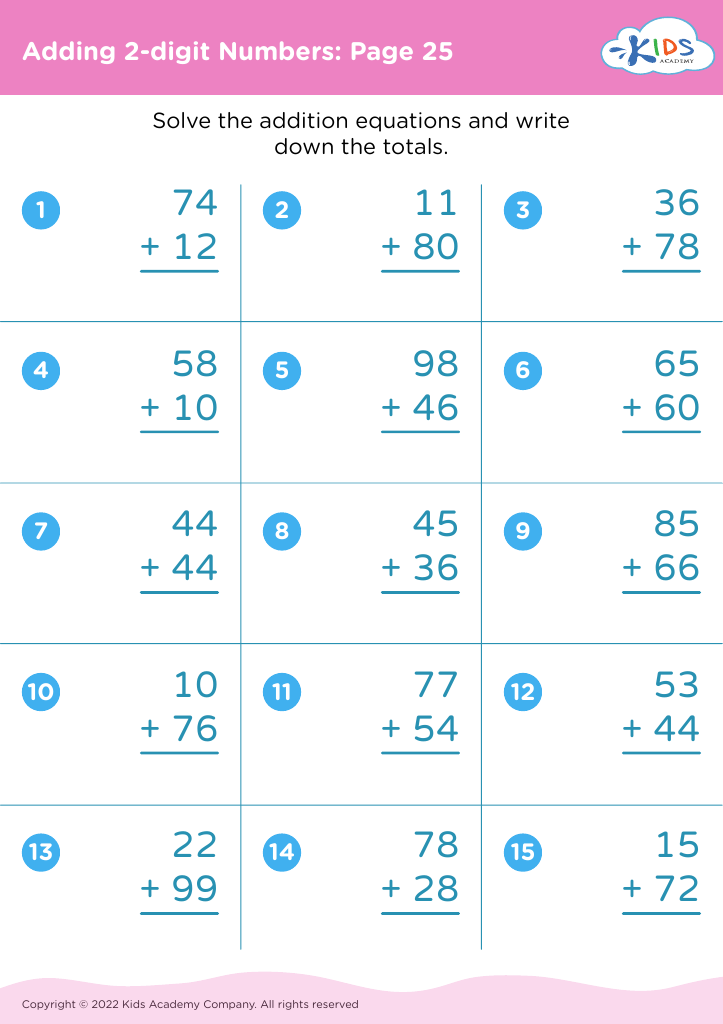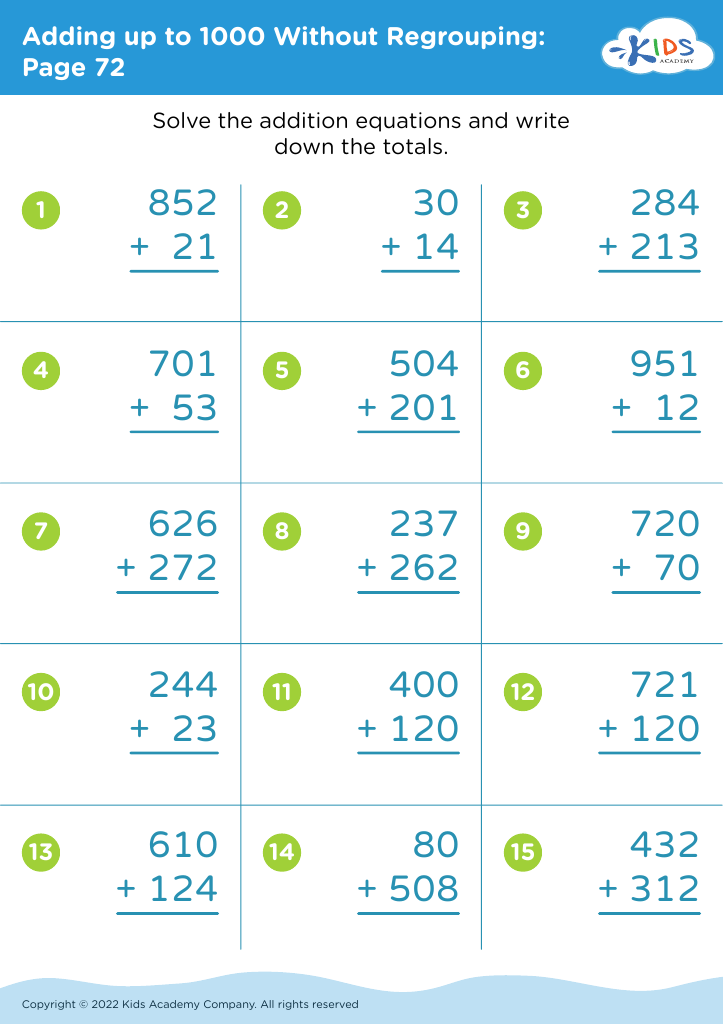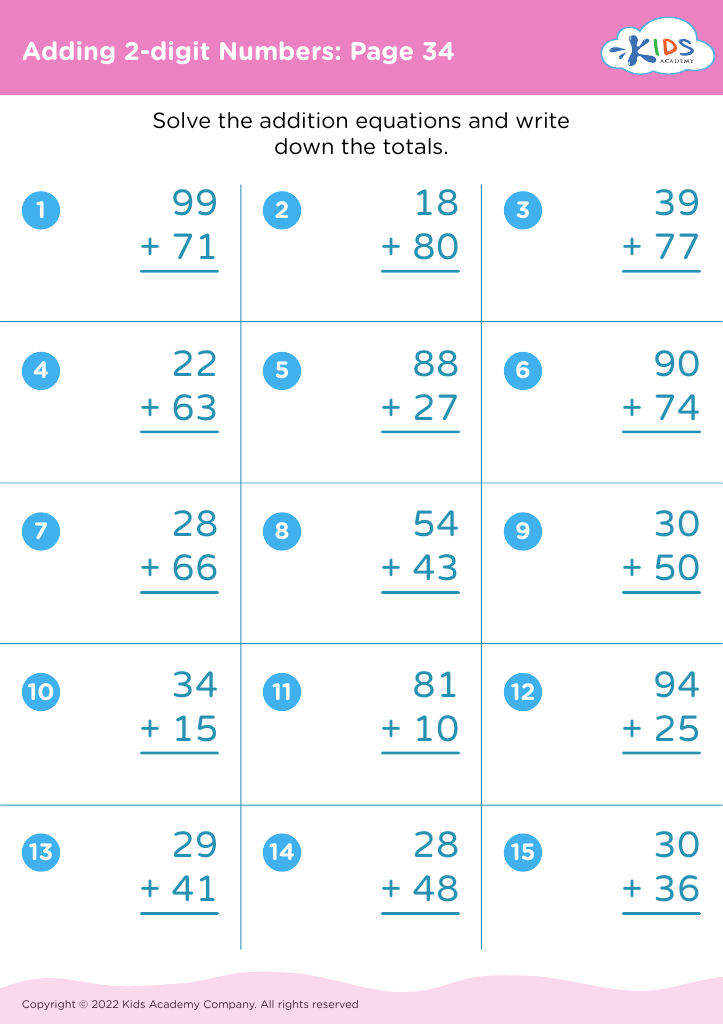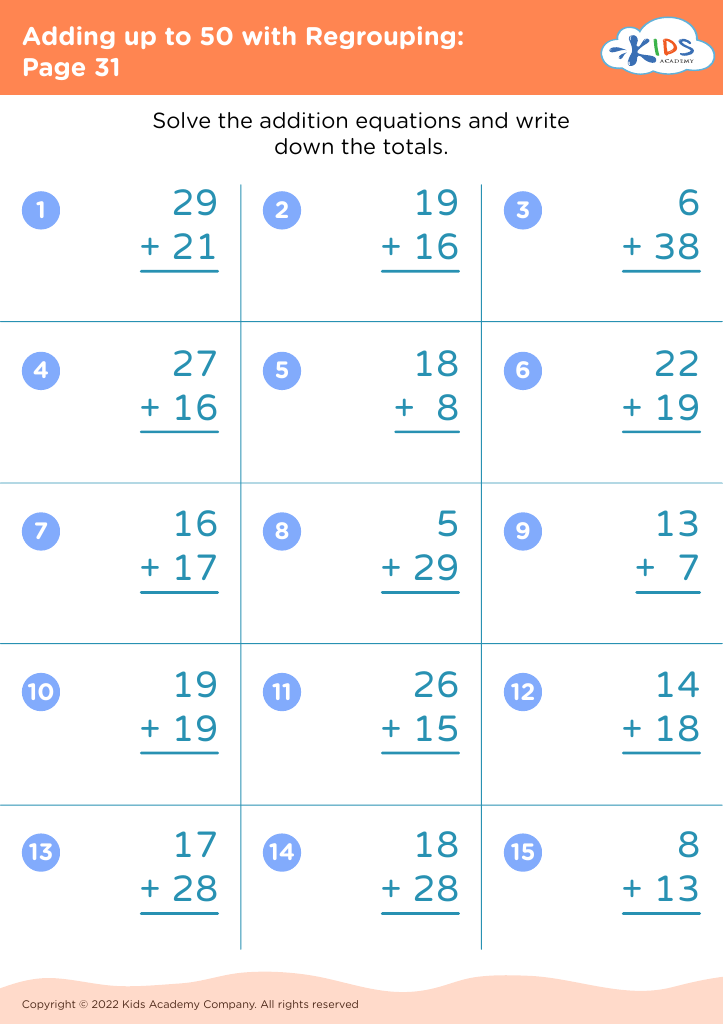Develop logical thinking Math Worksheets for Ages 3-7
9 filtered results
-
From - To
Introduce young learners to the fascinating world of math with our "Develop Logical Thinking Math Worksheets for Ages 3-7." Tailored to nurture critical thinking and problem-solving abilities, these worksheets blend fun with education. Engaging activities, puzzles, and colorful illustrations captivate children’s attention while teaching essential math skills. From recognizing patterns and shapes to basic addition and subtraction, these exercises make learning math enjoyable and effective. Perfect for parents and educators, our worksheets adapt to each child’s pace, fostering a love for learning and laying a solid foundation for future mathematical success. Empower young minds today!
Developing logical thinking in math for children ages 3-7 is crucial because it forms the foundation for their future learning and problem-solving abilities. At this early stage, children's brains are incredibly receptive and capable of absorbing new concepts. When parents and teachers focus on developing logical thinking skills through math, they equip children with the tools to understand patterns, relationships, and sequences, which are essential for daily decision-making and academic success.
Logical thinking in math at this age usually involves activities like sorting objects by size and color, recognizing shapes, and simple counting exercises. These activities help children develop critical thinking skills and enhance their ability to organize and analyze information. Additionally, mathematical reasoning fosters perseverance, as children learn to work through problems and build confidence in their abilities.
Moreover, early exposure to logical thinking and math can spark a lifelong interest in the subject. It encourages curiosity and a love for learning that will benefit children across all academic areas. Emphasizing math development in early childhood can also alleviate future anxiety or fear associated with math challenges.
In essence, nurturing logical thinking through math at a young age not only supports cognitive development but also instills vital skills that children will carry into adulthood, helping them to become successful and informed individuals.

























